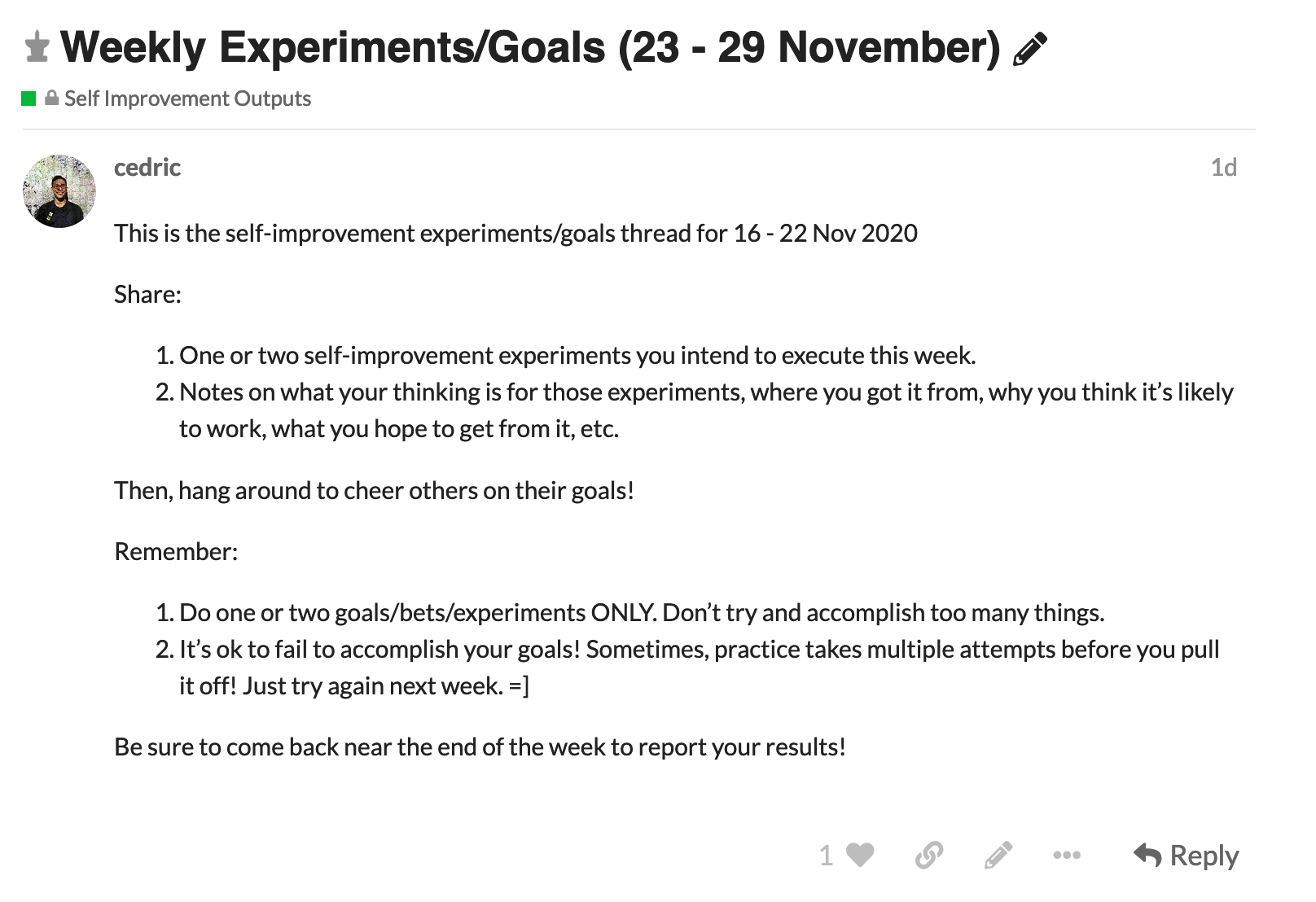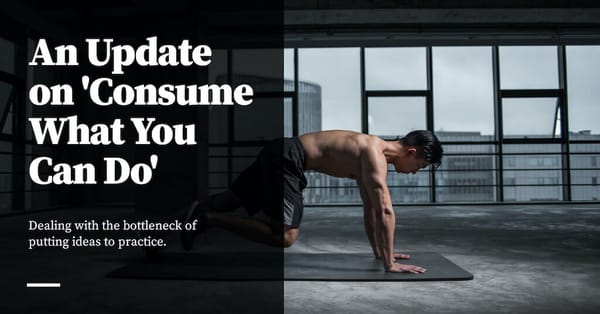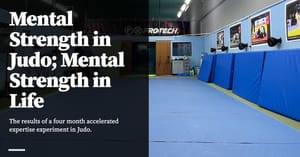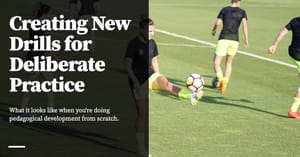Two months ago I wrote Consume What You Can Do — an argument to limit the amount of actionable ideas you consume, in favour of reading only what you could reasonably put to practice. I said at the end of the piece that I would give this a try for a couple of months, and then tell you how it turned out.
It's been two months since I wrote that post. Here's what I’ve learnt.
Reading Actionable Items by Accident
I consider this experiment a mixed bag.
The good parts first: the ‘two actionable experiments a week’ limit was a realistic constraint, and I liked that it forced me to acknowledge that constraint over the past eight weeks or so. Most personal experiments simply take more time than you might expect, which in turn means that you’d want to give yourself the license to be thoughtful about what worked, and what didn’t. A second effect: the self-imposed limit made me more critical over which ideas I would consider for future experimentation. Ideas that didn’t make the cut were dumped quickly.
The other thing that I found useful was setting up a ‘Weekly Experiments’ thread in the Commonplace Members forums. At the start of each week, I’d encourage members to list one or two experiments for the next seven days, and then write up results on a Sunday.

The nice thing about this practice was that I could watch and learn from the results of other people’s experiments, and in some cases copy what worked for them. As a result of this weekly thread, I’ve added two things to my ‘to-experiment’ list: one was the exercises recommended in Storyworthy (which multiple members seem to enjoy!) and the other was a more systematic attempt at using video recordings to improve in Judo (the member who was working on this was using it for agility drills, but the approach maps perfectly to Judo).
The major problem with Consume What You Can Do, however, was that I could not control when I encountered actionable ideas. Perhaps this should’ve been obvious to me: while I pared down the number of actionable books and blog posts in my toread list the week after I wrote the post, I learnt quickly that it was impossible to stop myself from finding actionable new things I wanted to test. I would read a blog post or skim a newsletter, or make progress in some non-fiction book at the end of a long day, and then I would stumble into some new idea that I knew I had to try.
This meant that I found myself, a few weeks in, with a to-experiment list was growing much faster than I could reasonably handle. It meant using some kind of note to track all the ideas that I wanted to experiment with. And it meant having these actionable ideas pile up as wasteful ‘excess inventory’.
Perhaps it was all inevitable.
Two Follow-up Ideas
There were two follow-up ideas that I thought were particularly good, by Commonplace members GJ Sequeira and Jonathan Horowitz:
- GJ suggested delegating some actionable ideas to others and have them report back. (In practice, this might work out to be ‘get other people interested in some actionable idea, and then learn from their experience’ — much like what was happening on some level in the members forums).
- Jonathan suggested that the store of actionable ideas would be useful as a mine of information: a) you may identify ‘hot spots’ in your current slate of interests and focus there, b) extract meta-skills that — if experimented on and mastered — would check off multiple experiments, or c) provide fodder to combine and recombine experiments in novel ways that perhaps aren’t obvious in isolation.
I agree with both ideas. I particularly liked Jonathan’s suggestion — if ‘embrace the limitation of two experiments a week’ is a pragmatic adaptation to constraints, then ‘lean into your backlog as a source of self-information’ is probably an equally realistic adaptation to make.
If I look back at the number of experiments I’ve done over the past eight weeks, I’d say that the commitment of doing two experiments a week was a net good. It was realistic, and having it sit above my GTD inbox served as an effective reminder to make some progress on my two experiments on any given day.

That said, I’m now a lot more sympathetic to those who insist that good note-taking is an important part of knowledge work. If you can’t help yourself but collect excess inventory (in the form of actionable ideas), then I suppose the next best thing is to invest in an inventory management system. A note taking system of some sort, for ideas you want to test, doesn’t seem like such a bad idea.
Originally published , last updated .





